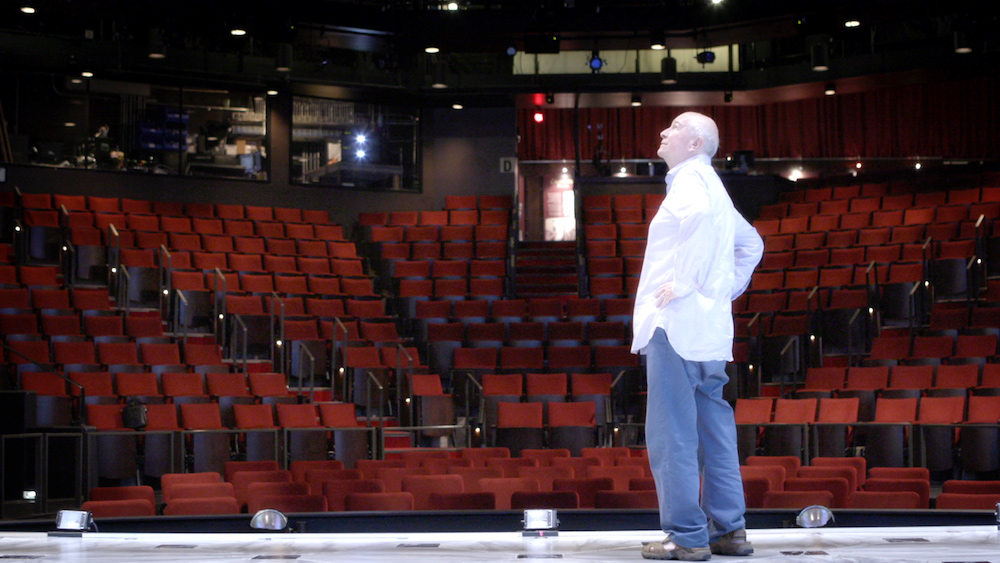Film Review: ‘Every Act of Life’
By Dennis Harvey
LOS ANGELES (Variety.com) – Few if any living playwrights have been as successful for as long as . “Every Act of Life” provides a predictably starry, rather standard, but satisfying overview of a prodigious career that is still going full-steam as the writer nears his ninth decade. It may require posterity to deliver a film that really weighs McNally’s influence, strengths, and weaknesses as a dramatist; Jeff Kaufman’s feature is more of a biographical valentine, aimed squarely at fans already somewhat knowledgeable about the subject’s life, works, and times. It should play well wherever such aficionados can be found — which is to say, anywhere Broadway and gay theater have a loyal base.
Opening with footage of McNally receiving a Tony — one of four won so far — for “Master Class” in 1996, this straightforward bio then backtracks to the start of a strictly chronological hagiography. Our protagonist traces lifelong “feelings of not really approving or even liking my own work” to the “push-pull of childhood” in unsophisticated Corpus Christie, Texas, raised by unhappy, alcoholic parents. A high school English teacher encouraged his evident talent, which took him to Columbia U. and then the Big Apple. His first-ever boyfriend was none other than Edward Albee, his second actor and frequent collaborator Robert Drivas. Both of those men were professionally closeted, the relationships stormy and sozzled.
McNally’s Broadway debut (1964’s “And Things That Go Bump in the Night”) had all the earmarks of success — until the critics got to it. Nonetheless, its qualities were noted (including the then-daring presence of an “out” gay character), and a subsequent decade of adventuresome off-Broadway works laid path to his first smash: 1975’s “The Ritz,” a clever, manic farce audaciously set in a gay bathhouse. But another decade of relative inactivity (broken only by a second hit, the resolutely heterosexual two-hander “Frankie and Johnny in the Clair de Lune”) ensued before he found his mojo again. That occurred thanks largely to Angela Lansbury — who informed him he needed to stop drinking if he wanted to live, let alone fulfill his potential.
Since 1986 McNally has been remarkably prolific for someone of his stature, racking up a total of some three dozen plays, 10 books for musicals, and four opera librettos — not to mention a handful of movie and TV assignments. This tally had room for plenty of misfires, but they’ve been sandwiched between great successes: gay-themed seriocomedies “The Lisbon Traviata,” “Lips Together, Teeth Apart,” and “Love! Valour! Compassion!”; star vehicle “Master Class” (about Maria Callas); “It’s Only a Play,” a farce as widely popular as “The Ritz”; and major Broadway musicals including “Kiss of the Spider Woman,” “Ragtime,” and “The Full Monty.”
With so much to cover, “Every Act of Life” can only devote limited attention to individual works, skipping some entirely while delivering just a few behind-the-scenes insights or star anecdotes about others. (It’s particularly interesting to hear about specific writing processes, including the fact that McNally’s actors demanded saving rewrites on the initially dire “Lips,” or how “Love!” got whittled down from outrageously long early drafts.) There’s not a lot of explanation as to what these plays are for the benefit of those not already acquainted. While there’s discussion of the controversy surrounding 1998’s “Corpus Christi,” which riled conservatives by updating the life of Christ to a modern gay context, its triggering content isn’t spelled out.
There’s less sense of haste in the still-brisk but heartfelt accounts of McNally’s later serious relationships, including a somewhat ambiguous more-than-friendship with late fellow playwright Wendy Wasserstein, plus domestic partnerships with writer/AIDS research clinic founder Gary Bonasorte (who died at 45 in 2000) and stage producer Thomas Kirdahy, whom he married in 2010.
Seemingly beloved by everyone who ever worked with him (several actors credit him for launching their careers), McNally admits all past faults and claims “my work never gave me pleasure before the last couple of years.” Yet at the same time, belying the tortured-writer stereotype, he doesn’t seem a terribly complicated or conflicted individual. He has the personality one might expect for a talent so frequently “crowd-pleasing,” generally upbeat and sometimes sentimental. “Every Act of Life” is not a movie inclined to ponder whether what one critic termed McNally’s tendency toward “slick artifice, a surfeit of manner over matter” will lend staying power in the even-longer run, or whether he’ll become another populist playwright whose popularity dies with him.
Beyond those featured here — Nathan Lane, Rita Moreno, Chita Rivera, John Glover, et al. — a list of those additionally interviewed but left on the cutting-room floor should make for a rich menu of home-format extras. Documentarian Kaufman (“The State of Marriage,” “The Savoy King”) has assembled a tight package that is conventionally pro in all departments, making full use of the expected treasure trove of archival performance and other materials.

